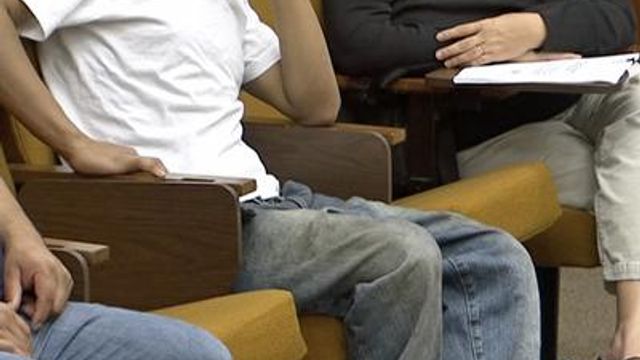Course aims to prevent second-time DWI offenders
The Crash Prevention Network of North Carolina holds a monthly course in Durham where first-time DWI offenders hear from victims, their families and even other offenders.
Posted — UpdatedKay Stokes, 61, was killed four years ago in a wreck in which Kenneth Wayne Maready's blood-alcohol level was more than three times the legal limit. Her brother, Calvin Parrott, attends the courses to tell others about his loss.
“There are days when I wake up that I wish I wouldn't wake up,” Parrott said. “I’ll never get over it.”
Parrott said his sister was a half-mile from his home when she was killed on Stallings Road in Durham County.
“She had been to this wholesale company and was bringing me peaches,” Parrott said.
Before he crashed into Stokes’ pickup, Maready had stolen a car and fled from deputies who had pulled him over. At the time of the wreck, Maready had a revoked driver's license and six convictions for driving while impaired.
Parrott said he hopes that by talking about his sister's death, first-time DWI offenders will think hard before drinking and driving again.
“Maybe I can say something, or someone can say something, to stop these drunken drivers from getting on the road, and maybe (that will be) saving a life,” Parrott said.
Former WXII-TV anchor Tolly Carr also shared his story Monday with course participants. He was sentenced to 25 to 39 months in prison for felony death by motor vehicle after his car struck and killed Casey Bokhoven in Winston-Salem.
For hours after the 2007 crash, Carr's blood-alcohol level was reportedly 0.13. Drivers in North Carolina are considered legally drunk if they have a blood-alcohol level of 0.08.
“You can't 'good deed' your way out of it. You can't do anything to make it better. In this situation, Casey lost his life, and there is nothing I can do to bring that back,” Carr said.
Carr’s participation in the course is part of his post-sentence prison release. By having first-time offenders hear from people affected by drunken driving, group organizers believe they can bring about change.
“If we can bring an offender to speak, and someone will be more responsible and will not drink and drive, then we have done what our mission is set out to do,” said Ollie Jeffers, with Mothers Against Drunk Driving.
Offenders pay $35 to attend the course as part of their DWI sentence. Only offenders who haven't been involved in a fatal drunken-driving crash can take the course. However, speakers often include people who have served time for death by motor vehicle.
• Credits
Copyright 2024 by Capitol Broadcasting Company. All rights reserved. This material may not be published, broadcast, rewritten or redistributed.





